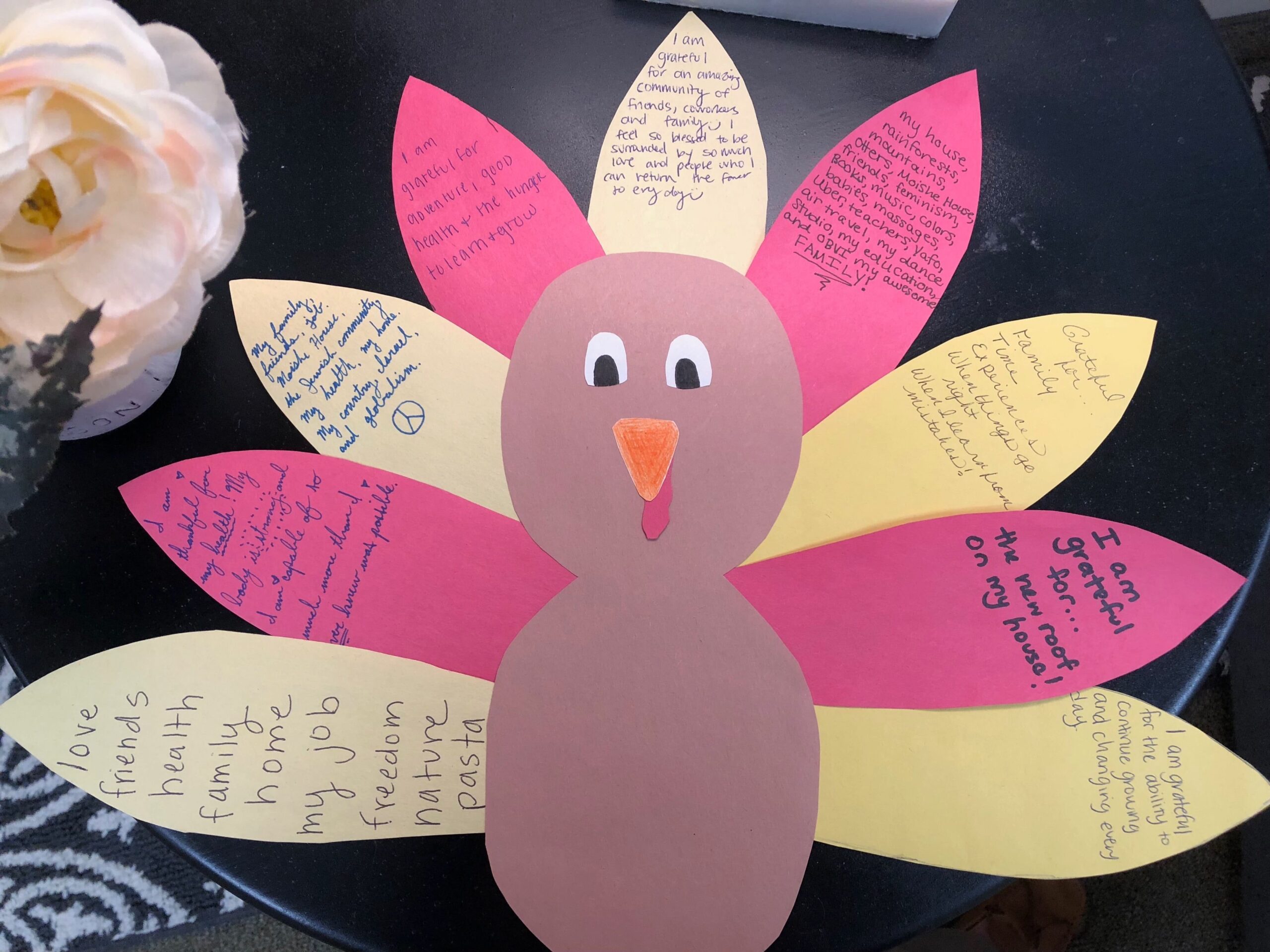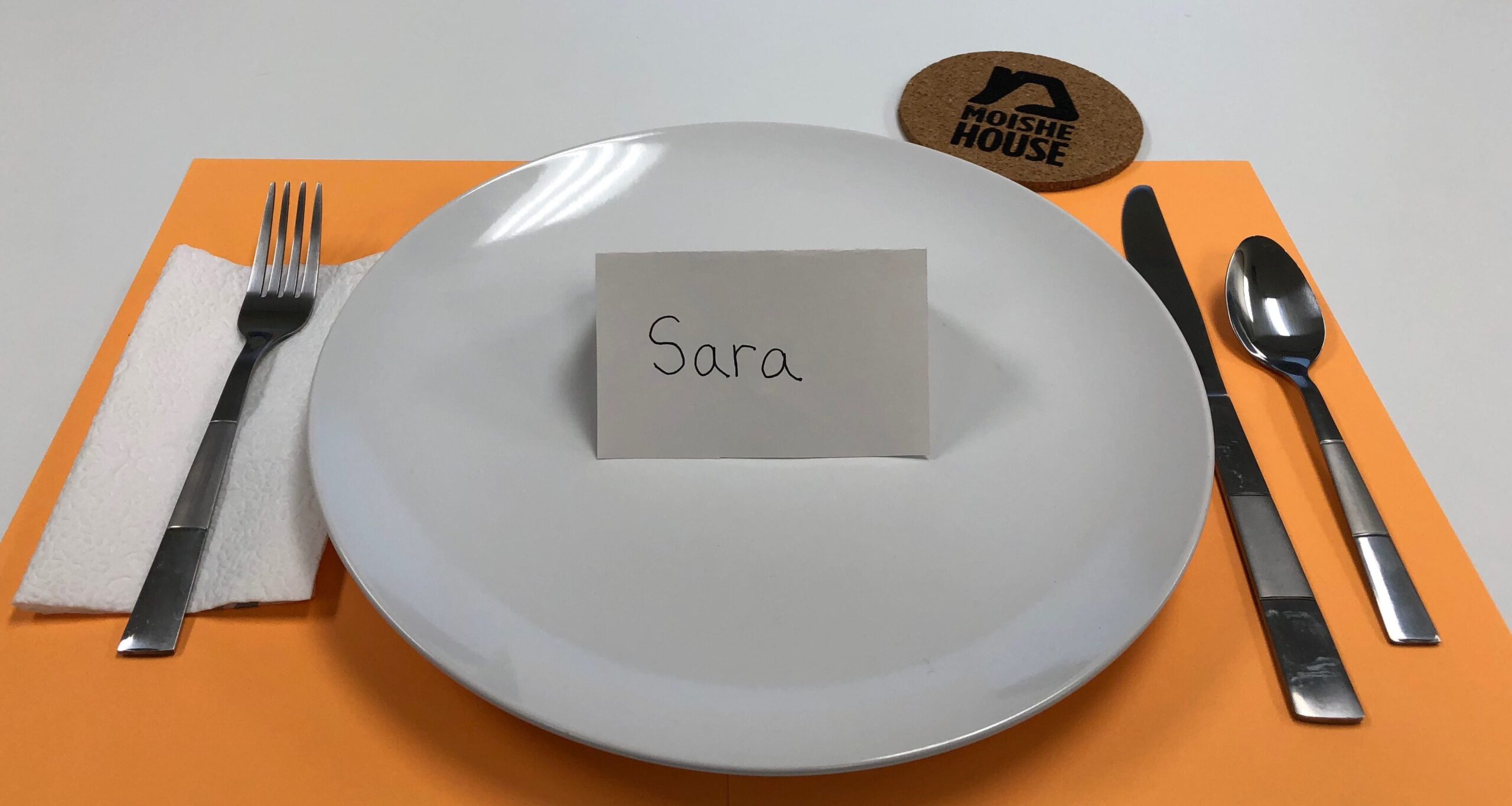
Growing in Gratitude: Program Resources
Gratitude in Judaism: A Discussion Guide
How does Judaism define gratitude? The Hebrew term for gratitude is hakarat hatov, which means “recognizing the good.” Practicing gratitude means recognizing the good that is already yours.Gratitude is one of the most important Jewish values. The first words the Torah mandates we say each morning, Modeh/Modah ani, mean “I thank you.” Throughout the day there are so many prayers we say to give thanks for the human body, the physical world, and much more.Even the name for the Jewish people is rooted in gratitude. The matriarch Leah named her fourth child Yehudah, which means “I am grateful.” Yehudah is the source of the name of the Jewish people: Yehudim.
Discuss: Why is gratitude important to you? What are the benefits of acknowledging the good things in your life?
“Who is rich? Those who rejoice in their own portion.” –Pirket Avot 4:1Being grateful helps cultivate happiness! Research confirms that those with high scores on measures of gratitude also score high on measures of happiness. In one study, 95% of individuals describe feeling happy when expressing gratitude.
“Focusing our attention on thankfulness for what we receive develops our ability to give.” –Dr. David Pelcovitz, Jewish Education Chair, Yeshiva University “Thankfulness has a connection with humility. It recognizes that what we are and what we have is due to others, and above all to God.” –Rabbi Lord Jonathan Sacks, Former Chief Rabbi of United Hebrew Congregations of the Commonwealth
Discuss: Do you find that it is difficult to be grateful for what you have? What gets in the way of gratitude?
“One who crosses the sea and survives a storm thanks God. Why not thank God when there is no storm?” –The Radziminer Rebbe“The enemy of gratitude is habituation. The way the human brain works is that we quickly become accustomed to even the most spectacular of gifts.” –Dr. David Pelcovitz, Jewish Education Chair, Yeshiva University “We are genetically predisposed to pay more attention to the bad than the good. For sound biological reasons, we are hyper-alert to potential threats and dangers. It takes focused attention to become aware of how much we have to be grateful for. That, in different ways, is the logic of prayer, of making blessings, of Shabbat, and many other elements of Jewish life.” –Rabbi Lord Jonathan Sacks, Former Chief Rabbi of United Hebrew Congregations of the Commonwealth
Discuss: How do you cultivate gratitude in your life? What would make it easier to acknowledge the good things in your life?
Developing awareness of what to be grateful for, even when life is going smoothly, can require conscious effort and practice. So how do you practice? For me, I’ve found that practicing mindfulness, taking the time to stop and notice, helps me to be grateful. One of the tenets of mindfulness is grounding ourselves in our breath. The Sages noted the similarity between the Hebrew word for soul, neshamah, and the word for breath, neshimah, in this verse: “Let all souls praise God, that man should praise and thank the Almighty for every breath.” I’m hoping they didn’t mean literally every breath, but the mandate is clear.Program Activities
Make a Gratitude Collage
This is one of my best friend’s family’s Thanksgiving traditions. Each person takes some time to reflect and write what they’re grateful for, then we share our reflections and hang them on the wall. Bonus points: Take a picture of your creation and send it to your participants in a few months, inspiring them to keep practicing gratitude.
Gratitude Challenge
Pass out paper to each of your participants and ask them to create a list of 20 things they are grateful for. 20 may seem like a lot, but hopefully this will demonstrate how much we have to be grateful for! Ask participants to share one thing they wrote down, and suggest they take their lists home as a reminder of all the good things in their life.Grateful Place Settings
If you’re assigning seats at your table, write each person a note about why you’re grateful for them. It’s a great way to set the tone for the evening and to make your participants feel valued.
